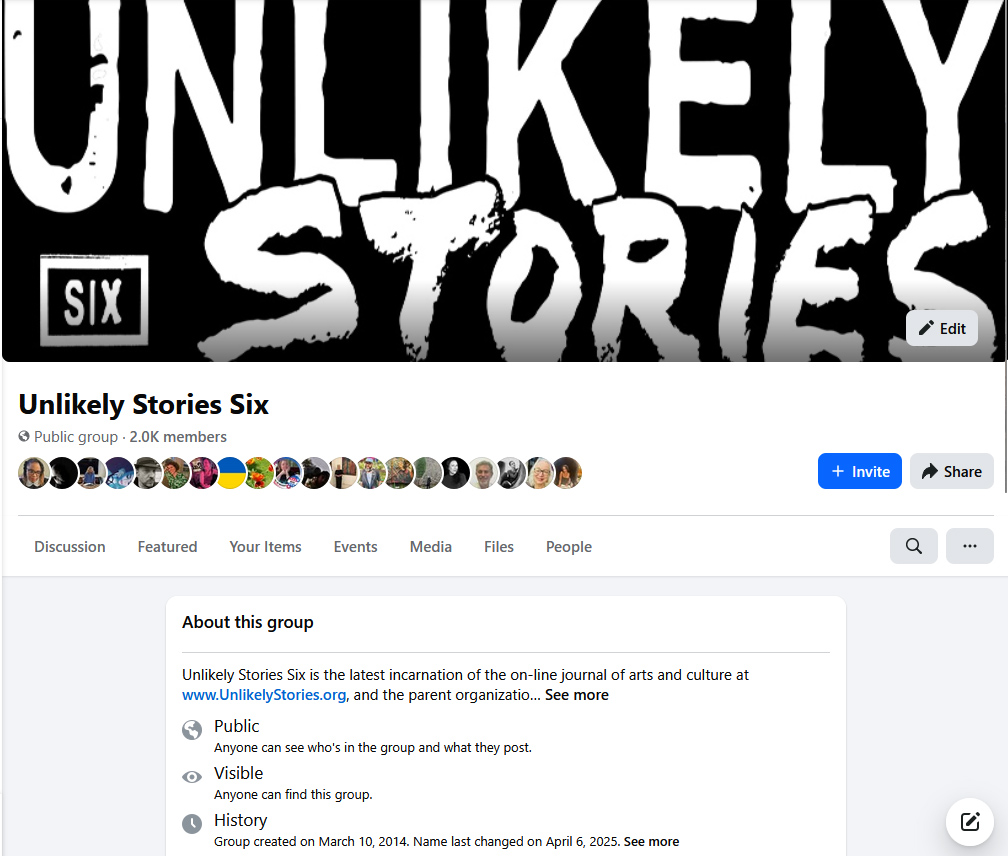Criticism
Recent Articles:
Photo Shoot Day
by Peter Cherches
Portrait of a Depiction
by Jimmy Crouse
"Case Study: An Interview with a Catatonic Schizophrenic about her Résumé" and "A Brief History of Evil Dolls"
by Peter Marra
"Peoples Laws" and "Midnight in Zamorra"
by Cecelia Chapman
One Hundred Thousand Steps
by Victor McConnell
Unknown to Himself
by A Sardine on Vacation
Diamond Plate
by Mark Rowland
Nocturnal Activities
by James Hannan
"The War Room," "A Capitalist Loves You," and "A Marketer Loves You"
by Salix Thelema Rausmend
The Interrogator and the Terrorist
by Ken Wetherington
Nine Asemic Realizations
by Steve Carll
"Emancipate the Free," "Presence on Earth," and "Do You Know Where Your Entanglement Is?"
by James Grabill
Four O’Clock
by Shae
Hospitals in Winter
by Ben Macnair
Birth of Dick Tator or The China Shop
by un-known
Water Guns in Ha Giang
by Dane Futrell
I Thought My Tattoos Mattered
by Karla Jynn
"Basics," "Coming," and "The Abyss"
by Craig R. Kirchner
"Anne Sexton, October 4, 1974," "Village Church," and "Hesitation Before the Journey Begins"
by Ma Yongbo
The Crypto Venture at 13 Third Street
by Eric Sentell
"We have always been here" and "Terms not accepted"
by Sam Harty
"Two-Lane Blacktop" and "The Day's Coming Fast"
by Arnold Johnston
Borgia (The Agony) & The Borgias (Worse Agony)
by A Sardine on Vacation
Slaughterhouse 3
by dan raphael
Like Kasia
by Benjamin Redwood
A Crow for Brunch
by Aster Olsen
"We Often Hear What Most Maligns Us," "We Must Be Careful," and "X = Hare Revisited"
by George Kalamaras
i know i am American
by Waverly Vernon
"sea gooseberry," "winter solstice memory," and "sunset"
by Karl Kempton
"The Post Trump" and "Let The Chips"
by LC Gutierrez
Summoning Minister Eddy Lesser
by Soidenet Gue
Any Way That The Damage Doesn’t Show
by Eliot S. Ku
Snacks & Sandstone
by Liliane
The Last Two Chocolate Chip Cookies in Manhattan
by Cindy Ellen Hill
My Mother's America
by R.S. Nelson
"Angel Death" and "Laos, 1986"
by John Grey
My Least Favorite Question
by Ethan Goffman
Epic Fail
by Arijit Lahiri
The Path
by Mehreen Ahmed
The Warpland
by Jon Wesick
"The Cherry Tree and the Sheep" and "Is It Time To Eat Dessert First?"
by Jacqueline Jules
Read or Listen
by A Sardine on Vacation
"Grounding a Beef" and "Standing Wet in the Random"
by Vernon Frazer
"Mother and Child Reunion, 2024" and "Nevaeh Versus Sasha, 2048"
by Marianne Szlyk
The Last Few Years of Life
by Arthur Davis



